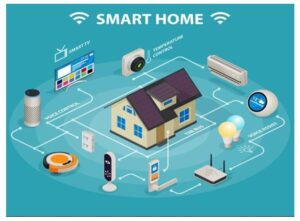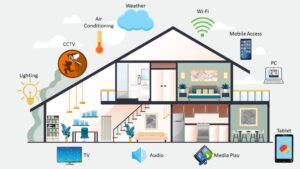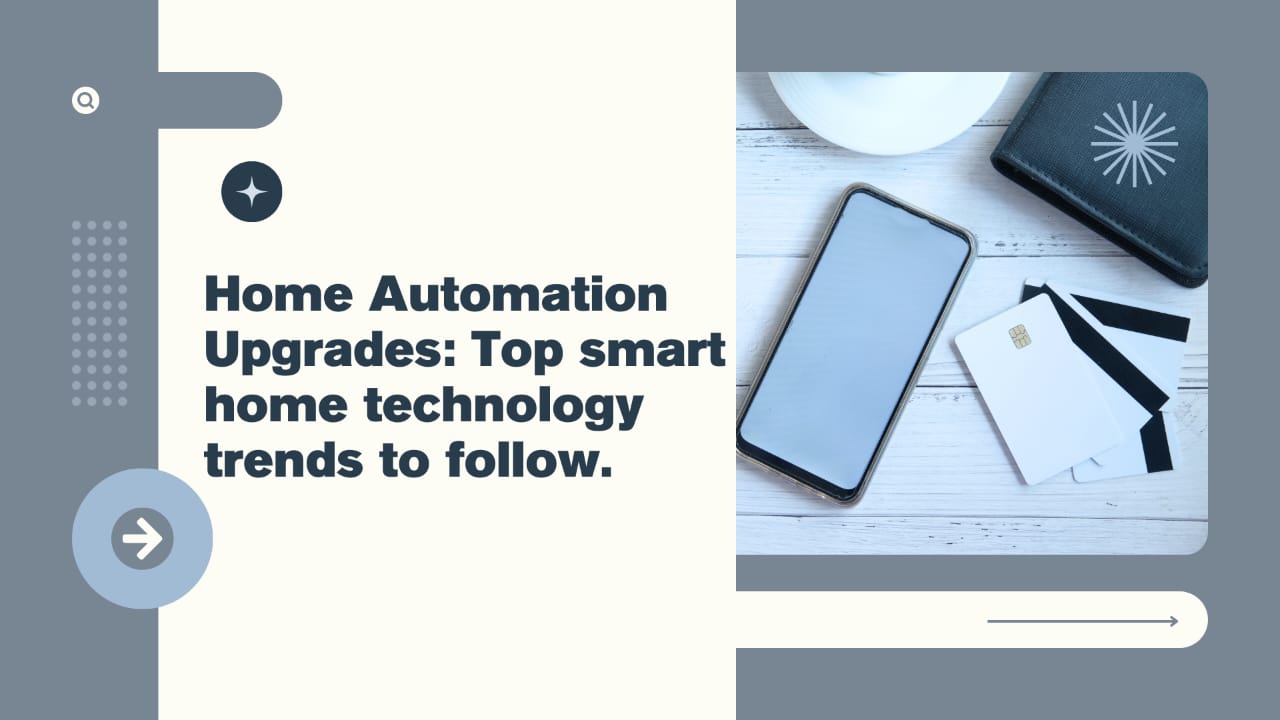The smart home technology has experienced tremendous growth in the past few years, therefore, offering great improvement in convenience, security, and energy efficiency. Customers are seeking solutions to make daily routine life more convenient and to keep control at their fingertips. It could be voice-activated gadgets, energy-saving devices, or integrated security systems-the world of smart home technology just keeps pushing boundaries. To keep your house updated, here are the top trends in smart home technology worth keeping up with:
- Voice-Controlled Home Assistants
Voice-controlled assistants are some of the most revolutionary parts of smart home technology. Devices such as Amazon Alexa, Google Assistant, and Apple’s Siri give the capability to interact with one’s own houses through voice commands to the homeowner. These systems can easily turn lights on and off, play music, adjust the thermostat, etc. Continuously, AI is being upgraded within these devises to better understand and predict user preferences.
- Intelligent Security Systems
The developments of smart home technology have led to numerous improvements in the security of homes. Modern security, including intelligent locks, video doorbells, and AI-powdered cameras, leaps beyond what a traditional alarm system offers. With such monitoring and alerts provided through real-time smartphone apps, homeowners can keep checking on their properties at any time; hence, peace of mind and safety are achieved by incorporating more and more add-on features like facial recognition and motion sensing.
- Energy Management and Smart Thermostats
The primary concern for most homeowners is energy management. Their smart home technology provides them with intelligent energy management systems. The smart thermostats, such as Nest or Ecobee, learn the habits of its users and accordingly adjusts the temperature for maximum saving of energy without any compromise on comfort. These can be controlled from anywhere, and thus the users ensure that they maintain maximum energy efficiency even when away from their homes.

- Smart Lighting Solutions
Another area with incredible advancement is lighting, where smart home technology has built in this area. For instance, systems such as smart lighting Philips Hue and LIFX allow one to change color and brightness in addition to schedules by just tapping on their smartphone or by voice command. Systems such as these emulate natural light to enhance mood and productivity levels or can automatically switch on and off depending on occupancy. It also has motion-activated lighting, and sunrise simulation for personalized comfort.
- Hubs for home automation
Centralized home automation hubs are an integral part of reliable smart home technology. It integrates multiple smart devices, and everything is placed under one roof for an easily managed operation; such platforms with Samsung SmartThings and Hubitat can now manage different operations of lighting security to entertainment and HVAC systems, among many others. Unification in controlling leads to greater efficiencies and simplifies the experience of smart home technology.
Read More: 8 Top Reasons Privacy Tempered Glass is the Best Choice for Modern Homes
- Smart Appliances and Connected Kitchens
Smart home and smart appliance control are also included in the kitchen. Smart refrigerators will remind the user when grocery items run low or even display recipes based on what ingredients are on hand. Smart ovens and microwaves can be preheated and monitored remotely, and coffee machines can be programmed to start brewing before you wake up. This kind of saving goes beyond the time-saving of not spending hours to also achieve better control over cooking and food management.
- High Definition Home Entertainment Systems
Entertainment is an important part of the smart home technology system. Smart TVs allow one to connect or monitor streaming devices and surround sound systems by voice commands or mobile apps. Enhanced connectivity allows several screens and speakers in the house to be chained in for an immersive effect. For instance, it would give house owners personalized recommendations for their viewing pleasure, modify lights, and deliver the optimum sound to achieve the cinema experience in the confines of a house.

- Smart Home Health Technology
The smart home technology is penetrating to a much higher level than health and wellness issues. It incorporates every type of equipment, including the monitoring of air quality, water leak detectors, and smart beds, all which contribute to healthier living conditions. Air quality sensors help alert the owners when pollutant or allergen levels are at unacceptable high levels and it forces action upon them immediately. Smart beds track patterns of sleeping and adjust accordingly for an uninterrupted night’s sleep. Water leak sensors, in conjunction with hubs in home automation systems, ensure that expensive water damage is prevented and creates awareness through instant notifications to its users.
- Robotic Cleaning Solutions
From robotic vacuums and mops to interacting with smart assistants, smart home technology is revolutionizing the process of cleaning, but brands like iRobot Roomba and Roborock already make mapping the house layout, optimizing cleaning routes, and even using voice commands possible while it can be controlled through smartphone apps. Automatic cleaners that empty their dustbins and mop floors add an additional layer of convenience in case a busy family’s household requires it.
- Sustainable Smart Home Solutions
Some of the main focuses emerging through smart home technology are sustainability. Devices to track water usage, energy use, and waste management allow homeowners to select a better environment for themselves. Smart irrigation controllers optimize watering schedules with current weather data to bring in efficient water use. Solar panels with advanced inverters and either own battery or integrated with home automation help bring renewable energy to homes, promoting sustainable living.
Conclusion
Indeed, with emerging inventions that continue to promote comfort, safety, and sustainability, the future of smart home technology is bright. Smart homes are influenced by voice-activated systems and energy-saving gadgets, AI-driven personalization, and more. Homes will never fail to provide a more connected, efficient, and enjoyable living environment if trends such as these are followed.
Whether it’s to introduce smart home technology to a new home or to upgrade existing systems, these innovations really make a difference in the modern home. They streamline daily routines and add value to property for the long-term.

